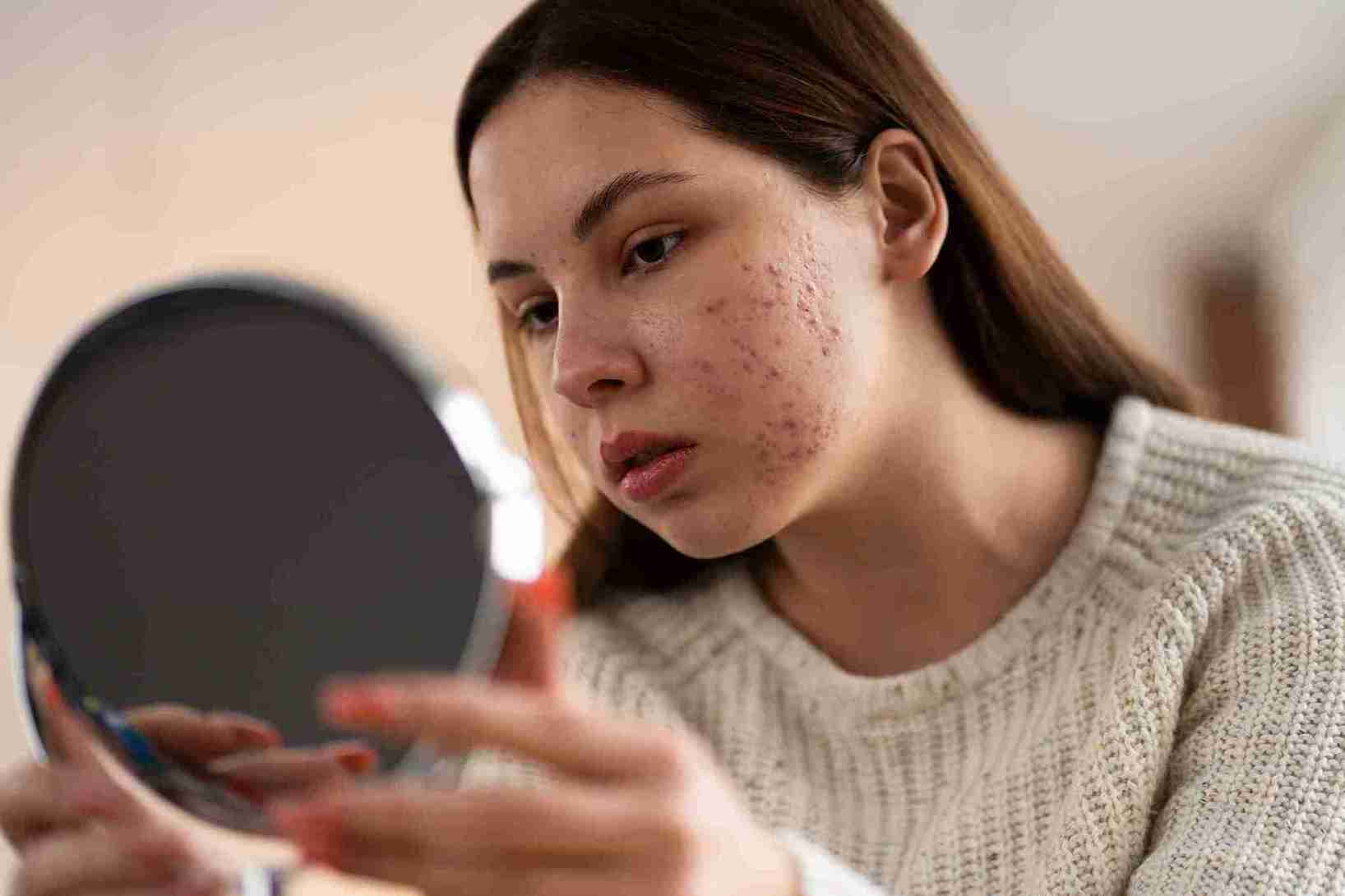
Hormones control nearly every function of a woman's body, mood and energy levels,as well as fertility and metabolism. Although estrogen and progesterone are more commonly talked about in women's health, testosterone is another essential hormone whose imbalance can have a significant impact on a woman's health. It is important to recognise the signs of high testosterone in a woman for the purpose of early detection and adequate treatment.
Even though testosterone is referred to as a "male hormone," it is also found in women, synthesised within their bodies, albeit in lesser quantities. Balanced levels of testosterone help maintain bone density, libido, and muscle strength in women. The body, however, begins sending signals once it reaches excessive levels.
This article discusses the causes and health effects of high levels of testosterone in women, with emphasis on the most important symptoms and concise advice on when to have a medical assessment.

Testosterone is a sex hormone secreted by the ovaries and adrenal glands in women. It is responsible for a number of important functions, including:
● Muscle and bone strength
● Libido and sexual function
● Energy levels and mood
● Brain function and memory
While men have greater amounts, women's testosterone levels must stay within a normal range to ensure proper hormonal balance. When it exceeds the range, it can lead to several physical and emotional symptoms.
Knowing what is the normal level of testosterone in a woman is vital to recognising imbalances. The measurements are generally reported in nanograms per deciliter (ng/dL).
● Total testosterone: 15–70 ng/dL
● Free testosterone: 0.3–1.9 ng/dL (varies by lab and age)
Keep in mind that these figures can fluctuate slightly due to the methods of testing and the health of the individual. Testing is advised if a woman is having symptoms such as irregular menstruation, excessive hair growth, or unwarranted weight gain.

When testosterone levels get too high, it can affect in ways that are hard to ignore. Some of these signs include:
Irregular or Missed Periods
Irregularity of the menstrual cycle is the classic symptom, as too much testosterone disrupts the process of ovulation.
Hirsutism (Excess Hair Growth)
Increased hair growth on the face, chin, back, or chest is a common sign of hormonal imbalance and can be emotionally distressing for many women.
Severe Acne and Oily Skin
Excess testosterone triggers the oil glands in the skin to cause breakouts, often along the jaw and cheeks.
Thin Hair or Balding
Women can develop hair that is similar to male-pattern baldness, typically at the crown or temples.
Deepening of the Voice
This, although less frequent, can happen with long-term or severe hormone imbalance.
Weight Gain and Insulin Resistance
High testosterone is associated with weight gain and trouble managing blood sugar.
Mood Changes and Aggression
Anxiety, irritability, and mood swings are emotional warning signs.
Remember that symptoms of high testosterone in a female may be similar to other conditions, so proper diagnosis is crucial.
There are many underlying conditions that may result in high levels of testosterone:
Polycystic Ovary Syndrome (PCOS): The most frequent reason, occurring in up to 10% of women. PCOS is characterised by irregular menstrual periods, ovarian cysts, and high androgens such as testosterone.
Congenital Adrenal Hyperplasia: A genetic syndrome that interferes with the production of adrenal hormones.
Ovarian tumours: Infrequent but serious reasons for unusually high testosterone.
Steroid Use or Certain Medications: Certain drugs and supplements can lead to hormonal imbalance.
Diagnosis usually begins with a review of symptoms and blood tests to measure both total and free testosterone levels. Additional tests may include:
● DHEA-S (another androgen)
● LH/FSH ratio
● Ultrasound of the ovaries (to evaluate for PCOS)
● CT or MRI (if a tumour is suspected)
Correct diagnosis separates treatable causes from each other and indicates the proper path, whether addressing PCOS or eliminating a more serious issue.
_11zon.jpg)
Treatments for high testosterone are usually a mix of lifestyle modifications and medical therapies:
Lifestyle Changes: Proper diet, regular exercise, and weight control can enhance insulin sensitivity and decrease androgen levels.
Oral Contraceptives: Birth control pills are often used to regulate menstrual cycles and lower testosterone levels by reducing ovarian androgen production.
Anti-Androgens: Drugs such as spironolactone inhibit the effects of testosterone on the skin and hair.
Treating the Underlying Cause: For instance, treating PCOS by controlling diet, losing weight, and using insulin-sensitising drugs such as metformin.
Each woman's treatment plan must be individualised, addressing symptom relief as well as the long-term balance of hormones.
You must see a healthcare professional if you have:
● Recurrent acne or hair loss
● Irregular periods or absence of cycles
● Excess growth of facial/body hair
● Mood changes or weight changes without a clear reason
Early assessment enables timely intervention, particularly if symptoms cause daily life to be disturbed or indicate underlying conditions such as PCOS.
While high testosterone can cause certain health issues, low testosterone levels in women may lead to fatigue, low libido, and reduced muscle strength. For those looking to boost their testosterone naturally, lifestyle changes can be very effective. Regular strength training exercises, ensuring adequate sleep, managing stress, and eating a balanced diet rich in healthy fats, zinc, and vitamin D are proven ways to support healthy testosterone production.
At Cloudnine Hospitals, we recognise the delicate nature of hormonal problems in women. Our endocrinologists, gynaecologists, and nutritionists offer personalised care plans that identify the underlying causes of hormonal imbalance, such as excessive testosterone. With cutting-edge diagnostics and empathetic guidance, we empower women to regain hormonal balance, reproductive well-being, and emotional equilibrium.
Whether you are dealing with PCOS, unexplained acne, or irregular cycles, Cloudnine's skilled care is designed around your needs and your comfort.

Learning the symptoms of high testosterone in a woman is critical to taking control of your hormonal health. From irregular periods to acne and hair loss, these symptoms should never be dismissed. Understanding what constitutes the normal level of testosterone in a woman makes it easier to detect it early on, and lifestyle changes and medical treatment provide good solutions. And in instances of low testosterone, one should understand how to raise female testosterone naturally to preserve energy, libido, and overall health.
If you're showing any signs of hormonal imbalance, book an appointment with a Cloudnine expert today. Your hormones are worth expert care—because balance is key

Life changes, oral contraceptives, and anti-androgens will lower excessive testosterone levels.

The female might develop symptoms like irregular periods, excess hair, acne, weight gain, and mood swings.

Yes, PCOS is a principal cause of high testosterone in women and can disturb menstrual and metabolic activities.

Foods such as flaxseed, spearmint tea, soy, and fibre-rich vegetables can lower androgen levels naturally.